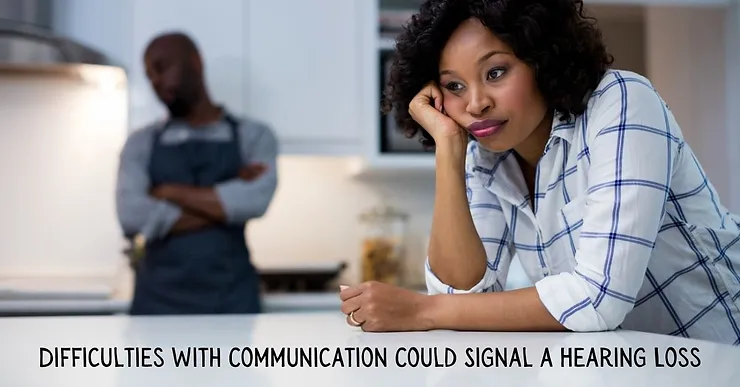
If you find yourself struggling to follow a conversation, you could be experiencing symptoms of hearing loss. One of the most common chronic health conditions today, hearing loss impacts over 40 million people in the U.S. It is important to be able to recognize the symptoms and understand how you can improve your hearing health!
How Hearing Works
The way we hear – referred to as the auditory system – involves the ears and brain which work together to absorb and process sound:
-
Outer Ear: consists of the most visible part of the ear which collects sound from the environment. The soundwaves then travel down the ear canal and land on the eardrum.
-
Middle Ear: the ossicles – three, tiny connected bones – help push the soundwaves further into the inner ear.
-
Inner Ear: this movement activates the cochlea, filled with thousands of hair cells and fluid, helps translate these soundwaves into electrical signals that are sent to the brain via auditory pathways. The brain is then able to assign meaning to this sound, enabling us to understand what we hear.
Typically, hearing loss results from damage to the hair cells in the inner ear. Unlike other types of cells, these specific hair cells do not regenerate. This means that we are born with all of the hair cells we will ever have so when they are damaged, it is permanent. There are no medical interventions or treatment that can replenish these hair cells which causes hearing loss.
Common Causes of Hearing Loss
Hearing loss can be caused by several factors including:
-
Environmental exposure to loud noise: one time and/or consistent exposure to loud noise can damage hair cells in the inner ear. The workplace and use of personal audio devices are common ways we are exposed to potentially harmful levels of noise.
-
Aging: presbycusis, also known as age related hearing loss, is the third most common medical condition older adults experience and is caused by the natural aging process.
-
Existing medical conditions: including cardiovascular disease, hypertension, stroke, and diabetes increase the risk of developing hearing loss.
Other possible causes of impaired hearing are head injuries and genetic history. Hearing loss is a pervasive reality that impacts people of all ages. Being able to identify the symptoms is key to early intervention.
Symptoms & Impact on Communication
These factors can damage integral parts of the auditory system which produces a range of symptoms that make communication difficult. This includes the following:
-
Tinnitus: a ringing, buzzing, or clicking like noise in one or both ears
-
Sounds are muffled or slurred
-
Frequently increasing the volume on electronic devices
-
Needing others to speak loudly, slowly, and/or repeat themselves
-
Moving to a quieter space to have a conversation
-
Difficulty hearing, especially in environments with background noise
-
Stronger ability to hear in one ear over the other
These symptoms can be experienced mildly to severely and can prevent a person from performing basic tasks with ease. The constant experience of these symptoms also profoundly impacts communication. They prevent people from hearing clearly, often leaving people to overextend themselves in trying to hear:
-
Reading mouths to identify words
-
Cupping one ear to help isolate sound
-
Assessing body language and facial expressions to help provide context
-
Asking others to make adjustments
These strategies and struggling through conversations can leave people feeling exhausted and frustrated. Others involved in the conversation may also feel like the person they are speaking with seems distracted and disinterested. This can cause people with hearing loss to avoid conversations, leading to social withdrawal which takes a toll on health and wellness.
Strained communication is a major symptom of hearing loss. It is crucial to address your hearing health as soon as you recognize any of these symptoms!
Treating Hearing Loss
Treating hearing loss is relatively simple and painless! The first step is to schedule an appointment for a hearing test. Conducted by one of our hearing professionals, hearing tests measure your hearing ability in both ears. This process identifies any impairment and the degree of hearing loss you may be experiencing.
Fortunately, there are useful ways to treat hearing loss. The most common treatment is hearing aids which are electronic devices designed to increase one’s hearing ability, improving overall quality of life! Contact us today to schedule an appointment.
